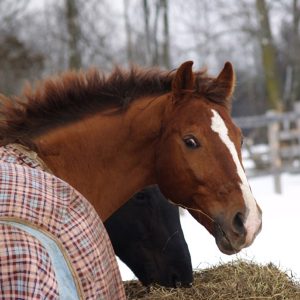
Horse Care Tips & Tricks in Fluctuating Weather – Part 2
As you continue to care for your equine companion through the seasons, it’s important to adapt your horse care approach...
» View Article
As you continue to care for your equine companion through the seasons, it’s important to adapt your horse care approach...
» View Article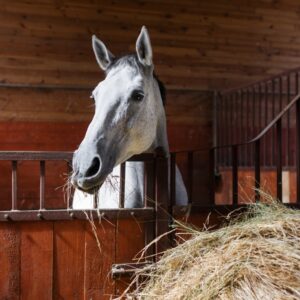
Caring for your equine partner is a year-round commitment that requires regular adjustment to their changing needs. When the weather...
» View Article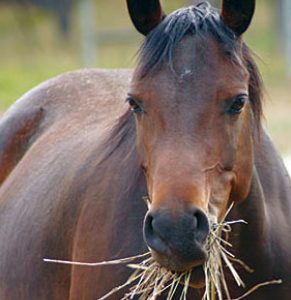
As the seasons shift, a horse’s dietary needs also change. Whether you’re preparing a horse for the colder months or...
» View Article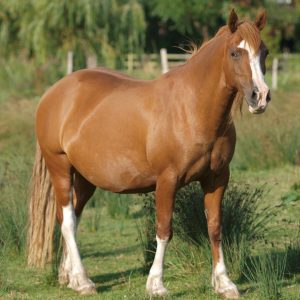
Knowing how much your horse weighs is important, but body condition is a key factor in determining how fit they are. Body condition measures the level of both fat and muscle in the horse’s body.
» View Article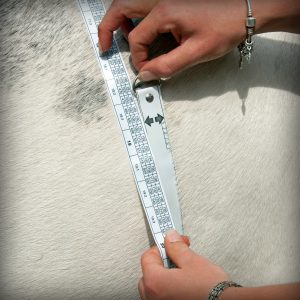
You can take a look at your horse and have an idea whether they’re thin or fat or just about right, to your eye. But it’s important to know (and monitor) your horse’s weight more accurately than “eyeballing” it.
» View Article
How a supplement is affected by temperature depends on the formulation of the supplement. Typically powders and pellets tend to be more …
» View Article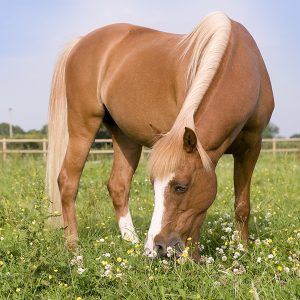
Excessive salivation in a horse can be dramatic when it appears as a bubbly or foamy mouth with strings of drool leading to a puddle on the barn floor.
» View Article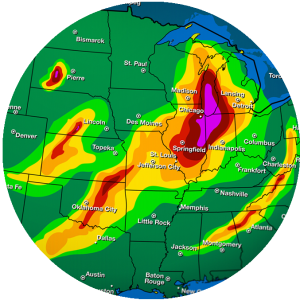
While patience and proper training techniques are essential when working with any horse, some horses can benefit from nutrients that support the normal activity of neurotransmitters (the chemicals responsible for transmitting impulses along nerve cells).
» View Article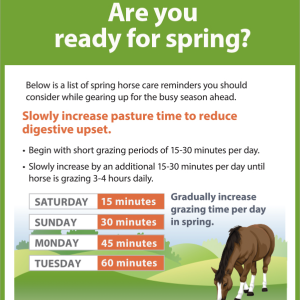
Below is a list of spring horse care reminders you should consider while gearing up for the busy season ahead.
» View Article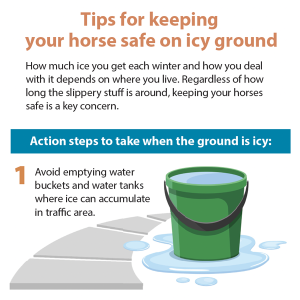
How much ice you get each winter and how you deal with it depends on where you live. Regardless of how long the slippery stuff is around, keeping your horses safe is a key concern.
» View Article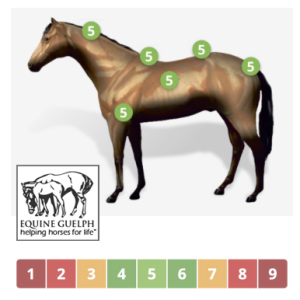
Article re-posted with kind permission by Equine Guelph: http://equineguelph.ca/index.php Equine Guelph has made a New Year’s Resolution to empower horse owners...
» View Article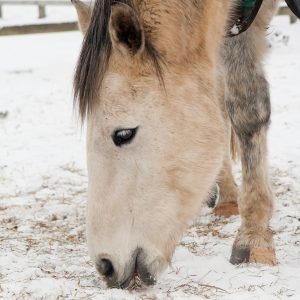
Once a horse is completely wet they can get cold very quickly. The average critical temperature for a horse with...
» View Article
Winter can negatively impact horses challenged by equine metabolic syndrome in a variety of ways, and this can increase their...
» View Article
10 feeding tips to help your horse get through the cold winter months 1. Don’t rely on pasture as your...
» View Article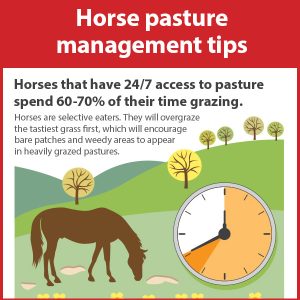
Healthy pastures require year-round maintenance. Fall is an important time to evaluate your horse pastures. Depending on your situation, you...
» View Article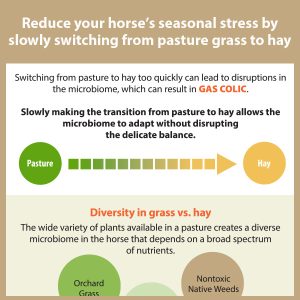
See link below to download a print version of this infographic. Click here to download a print version of this...
» View Article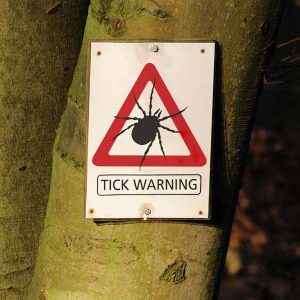
Lyme disease is a tick-borne disease that affects humans and animals, including horses. It is caused by a bacterial spirochete,...
» View Article
Roaring (recurrent laryngeal neuropathy or RLN) occurs when part of the larynx is paralyzed, blocking the airway. As the horse...
» View Article
The directions clearly state “Feed one scoop per day to a 1000-pound horse.” Is it a barely full scoop, an...
» View Article
There is nothing more maddening than trying to feed a critical supplement to your horse and having him not eat it. If you have a picky eater, introducing a new supplement slowly will help short-circuit any possible protests. How slowly depends on the horse and just how suspicious he or she is.
» View Video
A strong immune system protects your horse against a host of outside invaders, including bacteria, viruses, and parasites. A properly...
» View Article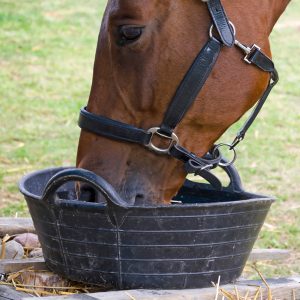
Question: Hi! I dampen my horses feed before feeding. Is it ok for your supplements to be mixed in with...
» View Article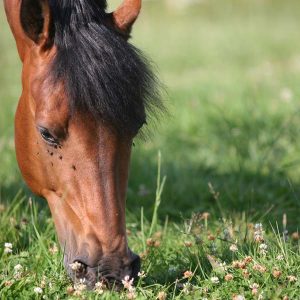
Composting your manure can reduce the number of stable flies on your farm. In a study done in Florida, soiled...
» View Article
Exercise benefits a horse in several ways. The effort of movement increases the calories a horse utilizes each day. The...
» View Article
"*" indicates required fields